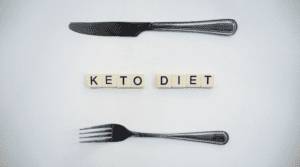Are you looking to maximize your T-levels, which ultimately boosts your muscle gains? If so, then it’s time to focus on the fuel that powers your workouts and supports muscle development. But before that, be sure to test testosterone at home to know what nutrients you should take more.
But why? While exercise is crucial, proper nutrition plays a vital role in helping you achieve optimal results. In this blog post, we will dive into the essential nutrients that are key for fueling muscle development.
Protein: The Building Blocks of Muscle

When it comes to muscle development, protein is the star player. Why? Let me explain. Protein basically serves as the main building block for muscles and aids in their repair and growth after intense workouts. Including an adequate amount of protein in your diet is crucial for fueling muscle gains.
But what exactly does protein do? Well, it contains amino acids – the essential components that our bodies need to build and maintain muscle tissue. When we exercise, our muscles undergo microscopic damage. Protein steps in by repairing these damaged tissues and promoting new muscle growth. Not all proteins are created equal, though. While animal sources like lean meats, eggs, and dairy products are considered complete proteins (containing all essential amino acids), plant-based sources like legumes, quinoa, tofu, and tempeh can also provide a good dose of protein.
Carbohydrates: The Fuel for Muscle Growth
 These energy-rich macronutrients are the body’s primary source of fuel during exercise and help support optimal performance in the gym. Carbs come in two forms: simple and complex. Simple carbs, found in foods like fruits and sugary snacks, provide quick bursts of energy. On the other hand, complex carbs, such as whole grains and vegetables, take longer to digest and provide sustained energy over a longer period. Including an adequate amount of carbohydrates in your diet is crucial for muscle growth. They replenish glycogen stores in muscles after workouts, helping them recover faster and prepare for future training sessions. Moreover, carbs stimulate insulin release, which aids in protein synthesis – the process that helps build new muscle tissue.
These energy-rich macronutrients are the body’s primary source of fuel during exercise and help support optimal performance in the gym. Carbs come in two forms: simple and complex. Simple carbs, found in foods like fruits and sugary snacks, provide quick bursts of energy. On the other hand, complex carbs, such as whole grains and vegetables, take longer to digest and provide sustained energy over a longer period. Including an adequate amount of carbohydrates in your diet is crucial for muscle growth. They replenish glycogen stores in muscles after workouts, helping them recover faster and prepare for future training sessions. Moreover, carbs stimulate insulin release, which aids in protein synthesis – the process that helps build new muscle tissue.
Fats: Unforgotten Heroes
Fats are often misunderstood and demonized in the world of nutrition, but they actually play a crucial role in muscle development. While it’s true that consuming excessive amounts of unhealthy fats can lead to weight gain and other health issues, incorporating healthy fats into your diet is essential for optimal muscle growth. One important type of fat for muscle development is omega-3 fatty acids. These healthy fats have been shown to reduce inflammation in the body, which can help with post-workout recovery and prevent muscle soreness. Foods rich in omega-3s include fatty fish like salmon, chia seeds, flaxseeds, and walnuts.
Micronutrients: Tiny Heroes We All Need

Micronutrients play a crucial role in fueling muscle development and optimizing gains. These tiny nutrients may be needed in small amounts, but their impact is undeniably significant. Vitamins are essential micronutrients that support various physiological processes necessary for muscle growth. Vitamin C, for example, aids in collagen synthesis, which is vital for maintaining the integrity of connective tissues during intense workouts.
Vitamin D helps regulate calcium levels, promoting bone health and muscular function. Minerals such as magnesium and zinc also contribute to muscle development. Magnesium plays a key role in protein synthesis and energy production, while zinc supports cellular growth and repair. Fueling muscle development requires a balanced approach to nutrition, ensuring that your body has the essential nutrients it needs for optimal gain. By focusing on protein, carbohydrates, fats, and micronutrients, you can provide your muscles with the fuel they need to grow and strengthen.
Ultimately, finding success with muscle development goes beyond simply eating enough calories or consuming copious amounts of protein; it’s about nourishing your body with well-rounded nutritional choices that support overall health along with dedicated training efforts.







Comments are closed.